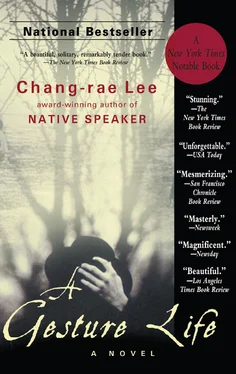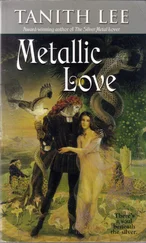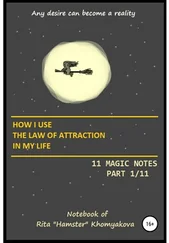Though here, in my town and every town, especially when you reach my age, you sadly find that the most available freedom is to live alone. There is an alarming surplus of the right. And though everyone accepts this, it’s unclear to me whether anyone truly prefers it so. Few seem satisfied with the familial character of their latter years. Even Mary Burns, who no doubt taught her daughters the value of family, found that they honored her training of them by keeping to themselves, as if her involvement would be an adulteration. They didn’t visit as often as she wished, nor of course did they ever ask if she would like to come live with them after Dr. Burns died, and even after her friendship with me came to its abrupt, unpleasant end. They let her be. Her daughters’ distance was an ever-deepening disappointment to her (even if she never really expected them to be perfectly embracing and filial), and though she rarely spoke of it, I know now it was one of the reasons why she was so willing to spend time with Sunny, and why any time was still better than none.
Veronica, who is now nibbling on her fingernails, one by one, as she flips the pages of her book, has already told me that she wants to live at home as long as possible, through college and beyond, at least until she gets married. She waits in my room for her mother, who will come to pick her up. Veronica’s future husband, who Veronica is certain will be a sculptor or a policeman or both, will have to love Officer Como as much as she does. Veronica herself will be a travel agent and murder mystery writer and the proud mother of seven bright-eyed, immeasurably happy girls. She doesn’t care if they’re not beautiful, in fact hopes that they aren’t, for she has seen already how some of the prettiest girls in her class have become distant and superior and wholly ungenerous, and particularly how the blond, slim, protuberantly endowed Brittany, the self-appointed head of the shrinking cadre of candy stripers, will hardly even look at her, as if doing so would be to invite certain personal doom.
My initial impulse is to tell Veronica how she’s absolutely right, how in this world (or the one we’ve made) beauty is the scantest blessing, and how, despite the appearance of ever-bestowed glory and celebration, it is mostly malice and misery that are returned to the bearer. I know this now, not from my own appearance, but from dealing with Sunny when she reached a certain maturity. She was beautiful, and in all the complicated ways I’ve already mentioned; Sunny thus educated me. In regard to myself, I’ve often been told I have a youthful, genial appearance, and am even a bit handsome. I remember what Mary Burns once remarked, after the first whole night we spent together. We were in my bedroom, and her spirit was ebullient with the clear light of the morning. She rose on her elbow and stretched, her exposed back still lithe and impressively athletic, and then she lay down and gazed at me from close range, as if she were tracing with her eyes the shape of my lips and nose and brow. I cleared my throat and sat up.
“I’m sorry,” she said, blushing. “I’m being terribly rude. I don’t mean to be odd. You must be wondering.”
So I said, “You’re making sure I’m the man you met last night?”
“No,” she said, smiling easily. “I’m not. It’s just that your face is so unlike my late husband’s, I can’t tell you. Bradley had such severe features, a long, narrow nose and deep-set eyes and a jutting chin. He was aggressive, in appearance. You have a wonderful gentleness to your face. A softer line to everything.” She smiled and lightly kissed my shoulder. “Goodness, listen to me. I’m sorry I’m talking like this. I’m going to scare you away.”
I didn’t, or couldn’t, reply, which wasn’t my intention, as I didn’t mind in the least what she’d said, but I had the urge to get up and dress and begin that Sunday like any other, although I had already slept through my swim time. Sunny had been downstairs for some time, warming up her hands with minor scales, up and down, in the dizzying series. I pulled on a robe and told Mary that I was going down to put the water on for our tea. I suggested she take a hot, soaking bath. She nodded, and from her weakened expression I could tell she wanted me to stay just a moment longer, that we might complete the conversation. But Sunny had begun playing intently and the night was done, and it seemed clear I should go downstairs and be present for her.
There had been indications that Mary’s ever-increasing presence was disturbing to Sunny, as she had seemed to be practicing more fervently in the preceding weeks, particularly when Mary was over at the house. She took her warm-up exercises at an incredibly fast measure, running through them as though she were attempting to twist up her fingers. The pieces themselves she performed quite rudely, as if she would trounce them. She didn’t miss a note, but the feeling in the playing was utterly perverse to what it should have been, as though she were critiquing rather than exploring the compositions. Mary would comment again how talented and skilled Sunny was, how dexterous and precocious, and I never thought to correct her appraisals, even though the performances were in fact maudlin and probably insulting to her, as they certainly were to me. I found them quite shaming. And as much as I tried, I couldn’t inculcate the same sense in Sunny, as she pretended not to know what I was talking about.
“I’m trying my very best, Poppa,” she’d say innocently, with her dark brown eyes gazing steadfastly up into mine. “You see that I am, don’t you?”
Japanese fathers are famously overgenerous to their children (quite the opposite of what most Westerners would presume and wish to think), extremely permissive and obliging with their little ones, and so it was quite normal that I should be as well; though with a girl like Sunny, I should probably have exercised more rigor and sternness. But as it often was, I let the issue go in favor of moving forward, to the next hour and day. My hope was that she would change as she grew into a young woman, and that the minor indications of willfulness would gradually fall from her like any child’s clutch upon a security blanket.
I, too, had been a difficult child. For me, it was the heady time of adolescence that unmasked and clarified my sense of obligations, so much so that I now view that period as the true beginning of “my life.” This was when I first appreciated the comforts of real personhood, and its attendant secrets, among which is the harmonious relation between a self and his society. There is a mutualism that at its ideal is both powerful and liberating. For me, it was readily leaving the narrow existence of my family and our ghetto of hide tanners and renderers. Most all of us were ethnic Koreans, though we spoke and lived as Japanese, if ones in twilight. Of course, I didn’t leave on my own. No one of my family’s circumstance could expect to change his station, at least without a lifetime of struggle. But I was fortunate to score exceptionally high on several achievement tests, and was one of a few boys of my kind to be identified and enrolled in a special school in the nearby large city.
I lived with a well-to-do childless couple, a gear factory owner and his wife, who treated me as well as a son, providing me with every material need and advantage. I remember being accompanied by them on the first day of school, in my new serge uniform with brass buttons that they had fitted just for me, and how the other boys had let us pass without even a murmur, this prominent family Kurohata (a name, as is self-evident, I’ve since shortened). I think of them most warmly, as I do my natural parents, but to neither would I ascribe the business of having reared me, for it seems clear that it was the purposeful society that did so, and really nothing and no one else. I was more than grateful. And I knew even then as a boy of twelve how I should always give myself over to its vigilance, entrusting to its care everything I could know or ever hope for.
Читать дальше











![William Frith - John Leech, His Life and Work. Vol. 1 [of 2]](/books/747171/william-frith-john-leech-his-life-and-work-vol-thumb.webp)
![William Frith - John Leech, His Life and Work, Vol. 2 [of 2]](/books/748201/william-frith-john-leech-his-life-and-work-vol-thumb.webp)